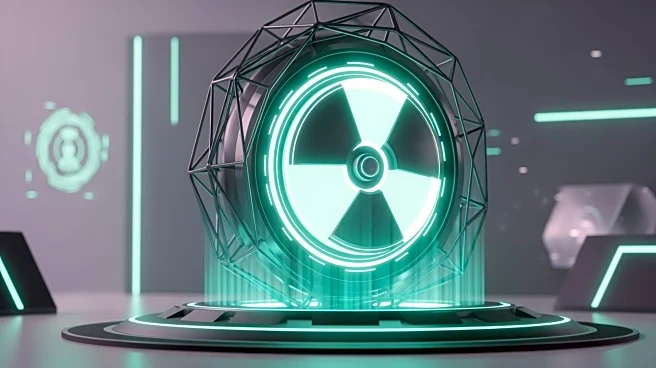What's Happening?
Japan's new Prime Minister, Sanae Takaichi, is prioritizing the revival of nuclear power as a central component of her energy policy. This move aims to reduce Japan's reliance on costly imported fossil fuels, which currently account for a significant
portion of the country's electricity generation. Takaichi's government plans to restart nuclear reactors to enhance energy security and address inflation concerns. The strategy includes engaging with local communities and stakeholders to gain support for nuclear restarts.
Why It's Important?
Japan's shift towards nuclear energy reflects a strategic effort to mitigate the economic impact of high fuel import costs and inflation. By reducing dependency on imported fossil fuels, Japan aims to stabilize its energy market and lower electricity prices. This policy could have significant implications for Japan's energy sector and its international trade relations, particularly with the United States. The focus on nuclear energy also aligns with global efforts to transition towards more sustainable and secure energy sources.
What's Next?
As Japan moves forward with its nuclear energy policy, the government will need to navigate public opinion and regulatory challenges associated with reactor restarts. The success of this policy will depend on effective communication with local communities and the ability to address safety concerns. Additionally, Japan's engagement with the U.S. on energy matters, including potential LNG purchases, will play a crucial role in shaping the country's energy landscape.


















